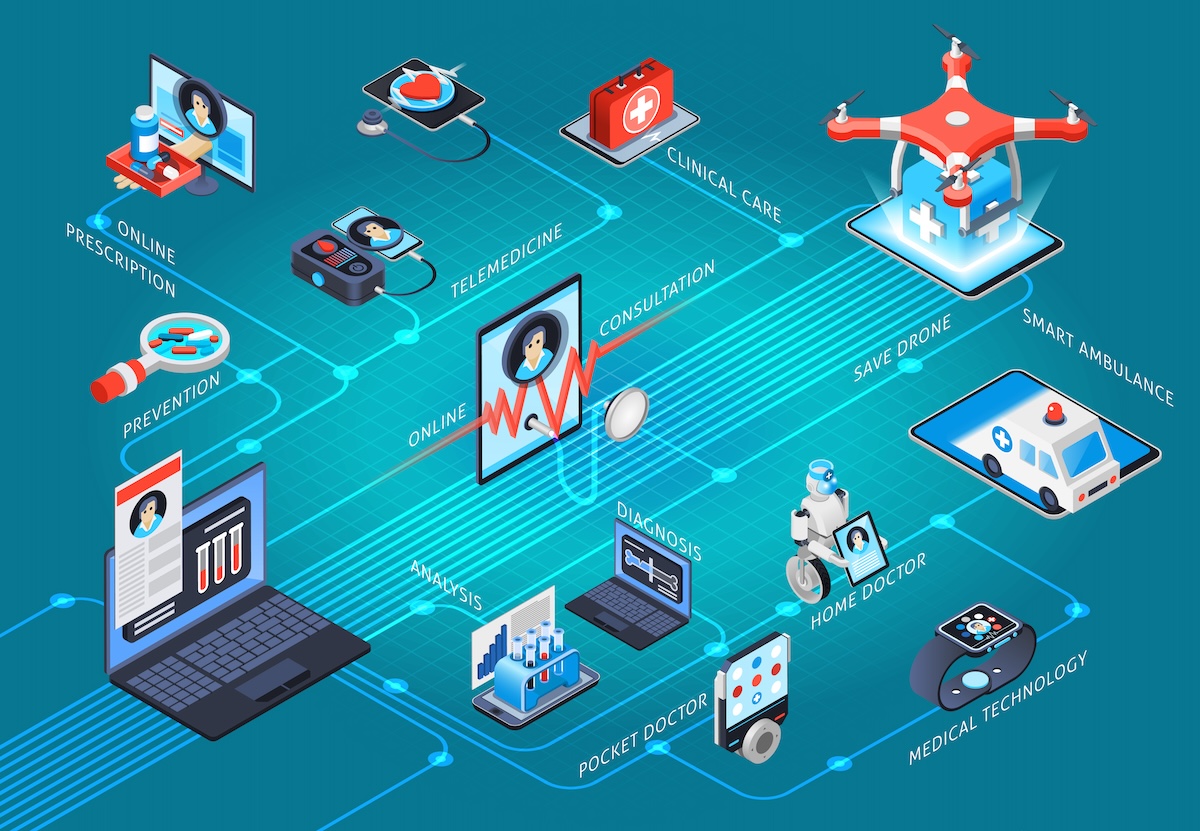AI Demystified: AI in healthcare

AI is transforming healthcare by enhancing the accuracy, efficiency, and accessibility of medical services. Here are some of the key ways AI is revolutionizing the healthcare industry:
- Diagnosis and Imaging: AI algorithms analyze medical images such as X-rays, MRIs, and CT scans to detect abnormalities and diagnose diseases with high accuracy. AI tools assist radiologists in identifying conditions like tumors, fractures, and cardiovascular diseases earlier and more precisely.
- Predictive Analytics: AI models analyze patient data to predict disease risk and progression. By identifying patterns and risk factors, AI helps healthcare providers develop proactive treatment plans and personalize patient care, improving outcomes and reducing healthcare costs.
- Drug Discovery and Development: AI accelerates the drug discovery process by analyzing vast datasets to identify potential drug candidates and predict their efficacy. AI tools streamline clinical trials by optimizing patient selection and identifying biomarkers, reducing time and costs associated with bringing new drugs to market.
- Personalized Medicine: AI enables personalized treatment plans by analyzing genetic, environmental, and lifestyle factors unique to each patient. This approach leads to more targeted therapies and better management of chronic conditions, improving patient outcomes.
- Virtual Health Assistants: AI-powered chatbots and virtual assistants provide patients with health information, symptom checking, appointment scheduling, and medication reminders. These tools enhance patient engagement and provide timely support, reducing the burden on healthcare providers.
- Electronic Health Records (EHRs): AI automates the management of electronic health records, streamlining data entry, reducing errors, and improving data retrieval. AI systems assist in analyzing EHR data to identify trends, optimize workflows, and enhance clinical decision-making.
- Remote Monitoring and Telemedicine: AI technologies enable remote patient monitoring through wearable devices that track vital signs and health metrics. Telemedicine platforms use AI to facilitate virtual consultations, improving access to care for patients in remote or underserved areas.
- Robotic Surgery: AI-powered robotic systems assist surgeons in performing minimally invasive procedures with greater precision and control. These systems improve surgical outcomes, reduce recovery times, and minimize complications.
- Population Health Management: AI analyzes population health data to identify public health trends, predict outbreaks, and allocate resources effectively. This helps healthcare systems address public health challenges and improve community health outcomes.
- Healthcare Operations: AI optimizes healthcare operations by improving resource allocation, scheduling, and supply chain management. AI-driven insights enhance efficiency, reduce costs, and improve patient flow within healthcare facilities.
By leveraging AI technologies, healthcare providers can deliver more accurate, efficient, and personalized care, ultimately transforming the industry and improving patient outcomes. However, it is essential to address ethical considerations, data privacy, and regulatory challenges to ensure the responsible implementation of AI in healthcare.
Last modified
